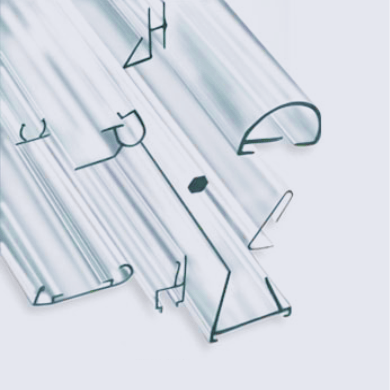In today’s competitive market, comprehending the subtle differences between manufacturers and suppliers within the packaging industry is vital for making strategic decisions that propel business success. For business owners, purchasing coordinators, warehouse managers, or inventory procurement specialists, understanding the nuanced distinctions between these entities is crucial for optimizing operations and enhancing profitability.
Core Functions: Manufacturer vs Supplier
Manufacturers within the packaging industry play a pivotal role in crafting the very materials we rely on, including bottles, boxes, and containers. They oversee the entire production process, from sourcing raw materials to delivering the finished product.
Suppliers, meanwhile, are vital cogs in the supply chain, tasked with distributing the packaging materials produced by manufacturers. They ensure products are delivered on time and often provide a diverse selection from various manufacturers to cater to a wide range of customer needs.
Let’s explore five critical considerations for navigating the dynamic between manufacturers and suppliers in the packaging industry, ensuring a comprehensive understanding of their distinct roles and contributions.
1. Production Control and Customization
Understanding the dynamics between manufacturers and suppliers in the packaging industry is crucial for recognizing the unique roles and benefits each brings to the table. Manufacturers occupy a special place in the supply chain, with in-house facilities that allow them to create packaging materials from the ground up. This capability offers businesses unparalleled control over the production process, enabling them to customize products to their exact specifications, whether that involves size, shape, branding, or materials.
Manufacturers are particularly adept at producing bespoke solutions that cater to the specific requirements of their clients. Whether it’s creating cosmetic packaging that balances durability with aesthetic appeal or developing specialized medical packaging that meets strict regulatory standards, manufacturers have the expertise to deliver high-quality, tailored solutions.
On the other hand, suppliers act as crucial intermediaries, bridging the gap between manufacturers and end-users. They offer a wide variety of pre-made packaging solutions. While the customization options may not be as extensive as those available when working directly with a manufacturer, suppliers make up for this with their ability to provide quick turnaround times and cost-effective solutions through their vast network of manufacturers.
This efficient procurement method ensures that businesses can access high-quality packaging solutions in a timely and affordable manner, without sacrificing reliability or convenience. In essence, manufacturers provide unmatched control and customization opportunities, while suppliers are the go-to for convenience, efficiency, and a broad selection of packaging options.
By understanding the dynamics between manufacturers and suppliers, businesses can make informed choices that best suit their specific needs and objectives within the packaging industry.
2. Quality Assurance and Consistency
Collaborating directly with a manufacturer guarantees a certain level of quality and uniformity in packaging materials. Through rigorous adherence to stringent quality control protocols during production, manufacturers ensure that each production run aligns with set specifications and complies with regulatory standards. While suppliers aim to uphold quality, their dependence on various manufacturers can introduce inconsistencies in product quality and uniformity. Nevertheless, reputable suppliers establish partnerships with dependable manufacturers to minimize these variations and maintain high-quality standards across their offerings.
Choosing a supplier known for consistent quality and prompt delivery underscores the importance of selecting one that is recognized for exceptional customer service.
3. Cost Considerations and Pricing Models
Sourcing packaging materials directly from manufacturers can lead to significant cost savings over time, particularly for businesses placing large orders. Manufacturers often offer competitive pricing, bulk purchase discounts, and incentives to encourage long-term relationships. However, smaller businesses may find the initial setup costs and minimum order requirements challenging.
On the other hand, suppliers can use their purchasing power and established relationships with manufacturers to secure competitive prices for their clients. Although the per-unit cost might be slightly higher than direct sourcing, suppliers offer added value through convenience, flexibility, and expertise.
The key is to select a supplier who can meet stringent quality standards and commit to a trustworthy, reliable long-term partnership.
4. Supply Chain Management and Logistics
Collaborating with manufacturers necessitates meticulous coordination across logistics, encompassing transportation, inventory control, and managing lead times. Companies need to evaluate production capabilities, geographical considerations, and the possibility of disruptions to guarantee fluid supply chain management.
Suppliers enhance the procurement process by overseeing inventory, logistics, and distribution for their clients. Through consolidating orders and utilizing their extensive manufacturing networks, suppliers deliver efficient supply chain solutions that reduce lead times and refine inventory management practices.
A leading supplier, recognized for its USPS-approved solutions, underscores the significance of responsive customer service and cost-effective strategies to ensure smooth logistics operations.
5. Collaboration and Partnership
At the heart of collaboration is a mutual drive towards excellence and continuous enhancement. Manufacturers bring their in-depth understanding of production processes and materials science to the table, while suppliers contribute their logistic expertise and insights into market dynamics. This synergy allows them to pool their resources and knowledge, creating innovative packaging solutions that not only meet but also exceed customer expectations.
Forging a direct relationship with manufacturers enables more profound collaboration and better communication. This close partnership allows businesses to convey specific needs directly, offer feedback, and work together on developing customized packaging solutions that perfectly fit their requirements.
Suppliers act as invaluable strategic allies, offering bespoke support, specialized knowledge, and insights into the industry. With dedicated account managers and customer service teams, suppliers put client satisfaction at the forefront, swiftly addressing queries, solving problems, and actively seeking ways to further enhance their offerings.
Final Considerations
The relationship between manufacturers and suppliers within the packaging industry is inherently symbiotic, with each entity playing a vital and interconnected role in the supply chain’s dynamics. Whether your focus lies on customization, cost efficiency, or streamlining the supply chain, a thorough assessment of the strengths and weaknesses of each option is crucial. This evaluation enables you to make an informed decision that best suits your packaging requirements. By comprehending the nuances and capitalizing on the unique advantages of both sectors, companies can refine their packaging strategies to respond to the changing market demands and foster sustainable growth.
Seeking specific packaging products and processes? Explore the extensive range of products and customization options offered by Petro Packaging to fulfill your distinctive needs.
For professional advice and a comprehensive selection of packaging solutions designed to cater to your business, consider visiting Petro Packaging today.




